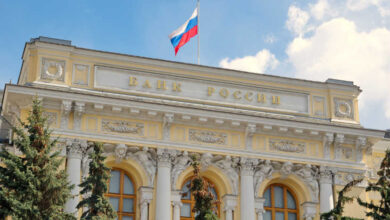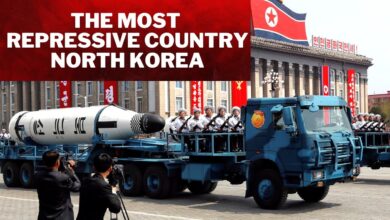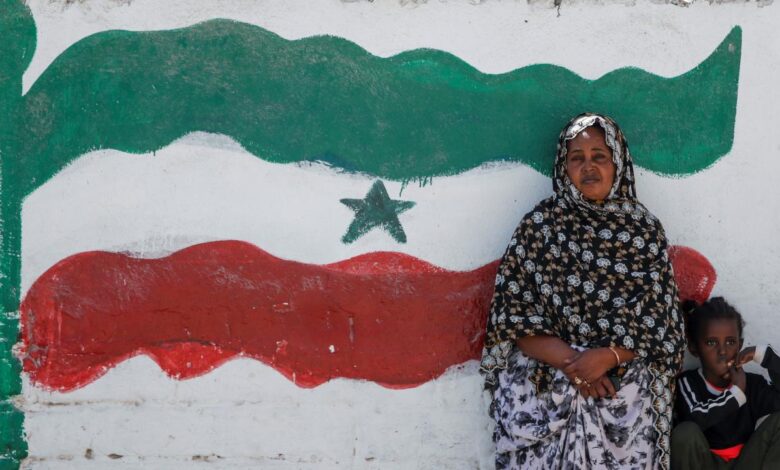
Somalilands President Bargains for Recognition
The president of Somaliland is bargaining for recognition – a high-stakes game playing out on the world stage. For decades, Somaliland has pursued independence from Somalia, building its own institutions and striving for international legitimacy. Now, its president is actively engaging in negotiations, hoping to finally secure the recognition it believes it deserves. This complex situation involves delicate diplomacy, potential concessions, and a careful weighing of risks and rewards.
The outcome will significantly impact Somaliland’s future and the stability of the Horn of Africa.
This post delves into the intricacies of Somaliland’s quest for recognition, examining the president’s strategy, the interests of international actors, and the potential implications for Somaliland’s economy and politics. We’ll explore the historical context, the legal arguments underpinning Somaliland’s claim, and the various scenarios that could unfold as negotiations progress. Get ready for a fascinating look into a little-known but incredibly important geopolitical story.
Somaliland’s Recognition Status
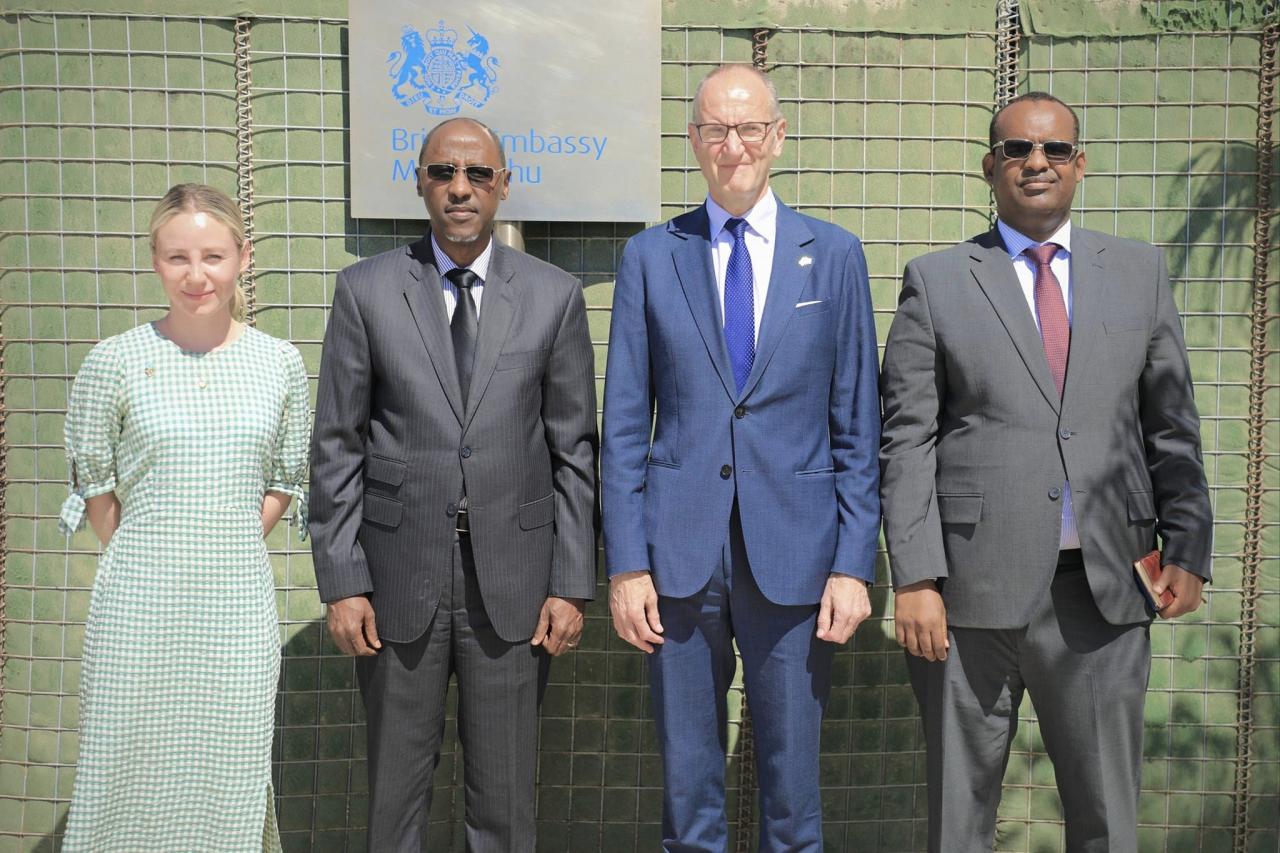
Somaliland, a self-declared independent state in the Horn of Africa, occupies a unique and precarious position in the international arena. While it functions as a de facto independent state with its own government, currency, and military, it lacks the crucial element of international recognition, a status that significantly impacts its economic development, diplomatic relations, and overall standing in the global community.
Understanding Somaliland’s quest for recognition requires examining its history, legal arguments, and the timeline of key events.
Somaliland’s Current International Recognition Status
Currently, Somaliland is not recognized as an independent state by any member of the United Nations. This lack of recognition means it’s excluded from many international organizations and agreements, limiting its access to vital resources and partnerships. While some countries maintain unofficial or informal relations, no nation has formally extended diplomatic recognition, leaving Somaliland in a state of political limbo.
This lack of recognition impacts its ability to participate fully in global affairs and hinders its economic growth by limiting access to international trade and investment.
Historical Context of Somaliland’s Quest for Independence
Somaliland’s claim to independence is rooted in its pre-colonial history and its brief period as a British protectorate. Unlike other parts of Somalia, Somaliland was a separate British protectorate until its union with Italian Somalia in 1960 to form the Somali Republic. This union, however, was fraught with issues, marked by a lack of consultation with Somaliland’s leadership and a failure to address the distinct cultural and political identity of the region.
The Somali Republic subsequently collapsed into civil war in 1991, leading Somaliland to unilaterally declare its independence. This declaration, though significant, has yet to garner widespread international support. The historical context, therefore, is crucial in understanding Somaliland’s persistent pursuit of recognition, which is seen by many Somalilanders as a restoration of their pre-1960 independence, rather than a new secession.
Somaliland’s president is pushing hard for international recognition, a long and difficult process. It makes you wonder about the fragility of modern systems; check out this insightful piece on Newt Gingrich discussing the unthinkable: newt gingrich what if we lost electric power for years – it highlights how easily essential services can collapse. The challenges facing Somaliland, in securing recognition and basic infrastructure, resonate with Gingrich’s concerns about societal resilience in the face of widespread power outages.
Legal Arguments for Somaliland Statehood
Somaliland’s claim to statehood rests on several legal arguments. It argues that the 1960 union with Italian Somalia was illegitimate, lacking the necessary democratic consent and proper legal framework. Furthermore, Somaliland points to its successful establishment of a functioning government, its own constitution, and its relative peace and stability compared to the rest of Somalia as evidence of its capacity for self-governance.
These arguments, while compelling to many, haven’t convinced the international community, which often cites the principle of territorial integrity and the potential for destabilizing precedents as reasons for withholding recognition. The legal arguments remain a central point of contention, highlighting the complexities of international law and the political realities involved in state recognition.
Timeline of Key Events in Somaliland’s Pursuit of Recognition
- 1884-1960: British Somaliland Protectorate. Somaliland operates as a separate entity under British rule.
- June 26, 1960: Independence from Britain. Somaliland declares independence as a sovereign state.
- July 1, 1960: Union with Italian Somalia. Somaliland voluntarily joins with Italian Somalia to form the Somali Republic.
- 1969-1991: Siad Barre Dictatorship. A period of authoritarian rule in Somalia, marked by repression and instability.
- May 18, 1991: Declaration of Independence. Somaliland declares its independence from Somalia following the collapse of the Siad Barre regime.
- 1991-Present: Constitutional Development and Governance. Somaliland establishes its own government, constitution, and institutions, striving to build a stable and functioning state.
- Ongoing: International Engagement and Advocacy. Somaliland continues to pursue diplomatic recognition and engagement with the international community.
This timeline illustrates the protracted and complex nature of Somaliland’s struggle for recognition, highlighting the continuous efforts undertaken to build a viable and independent state.
The President’s Bargaining Strategy
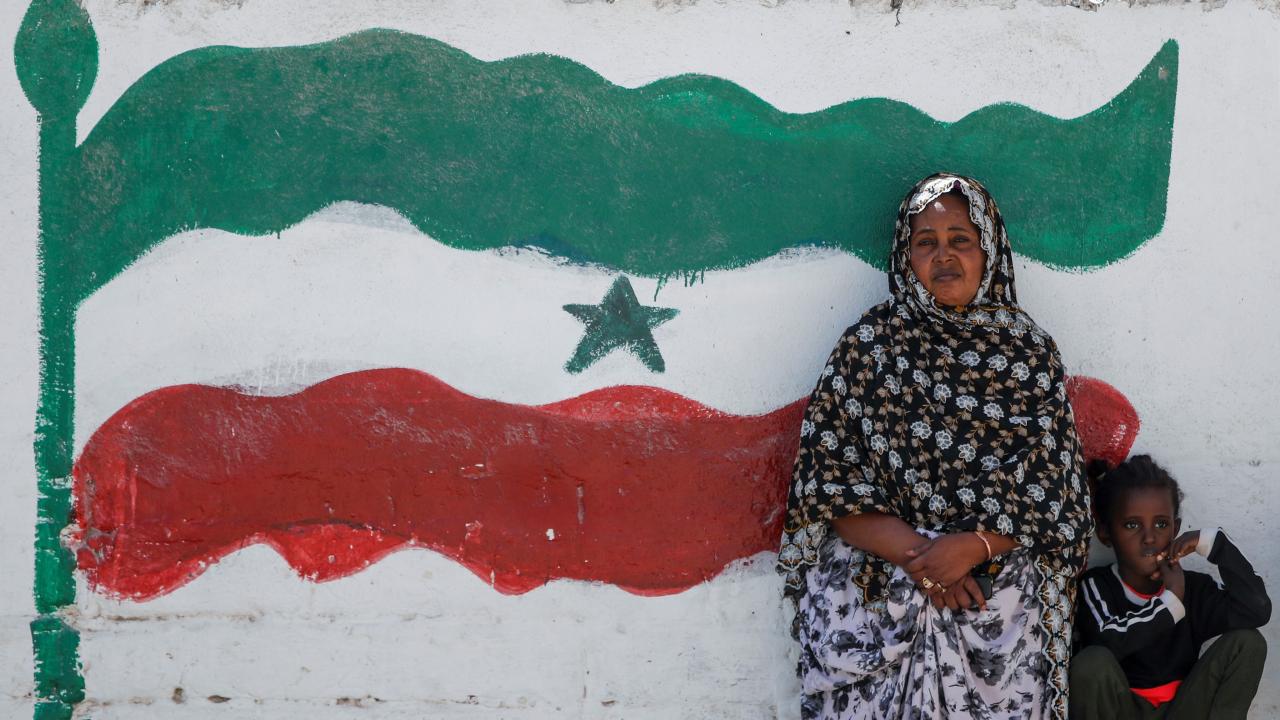
Somaliland’s pursuit of international recognition is a complex undertaking, requiring a nuanced bargaining strategy from its president. Success hinges on identifying key players, offering compelling concessions, and carefully weighing potential benefits against inherent risks. The president’s approach will shape Somaliland’s future trajectory significantly.
So, Somaliland’s president is really pushing for international recognition, which is a huge deal. It makes me think about online verification – the whole thing feels a bit like trying to get a blue checkmark on Twitter, now that elon musk confirms twitter will revise user verification process. Getting global recognition for Somaliland is probably even harder than securing that coveted blue tick, requiring years of diplomatic maneuvering and proving legitimacy to the world.
Key Actors in the Negotiations
The actors involved in Somaliland’s recognition bid are diverse and influential. They include individual nations, particularly those with historical ties to the region or strategic interests in the Horn of Africa. Regional organizations like the African Union (AU) and the Intergovernmental Authority on Development (IGAD) also play crucial roles, often acting as mediators or influencing the positions of member states.
Furthermore, international bodies such as the United Nations (UN) and the European Union (EU) possess significant sway through their diplomatic channels and potential for financial aid. Finally, the Somali federal government remains a key, albeit often obstructive, player in the negotiations. Their stance directly impacts the international community’s willingness to recognize Somaliland.
Potential Concessions from Somaliland, The president of somaliland is bargaining for recognition
To secure recognition, Somaliland might offer various concessions. These could include compromises on territorial disputes, particularly concerning the disputed regions with Somalia. Somaliland might also commit to specific governance reforms, such as strengthening democratic institutions, improving human rights protections, or addressing concerns about the equitable distribution of resources. Further concessions could involve economic incentives, such as preferential trade agreements or investment opportunities, to attract foreign investment and demonstrate its commitment to economic stability.
The specifics would depend on the individual nation or organization Somaliland is negotiating with and their priorities.
Anticipated Benefits of Recognition
International recognition would bring numerous benefits to Somaliland. It would enhance its legitimacy on the world stage, opening doors to increased foreign investment, trade partnerships, and development aid. Recognition would also solidify Somaliland’s sovereignty, strengthening its national identity and stability. Moreover, it could facilitate access to international financial institutions, offering crucial support for infrastructure development and economic growth.
Improved access to international security cooperation could also enhance Somaliland’s ability to address internal security challenges. For example, gaining recognition could unlock opportunities for collaboration with international partners in counter-terrorism efforts.
President Muse Bihi Abdi’s push for Somaliland’s recognition is a high-stakes game, demanding international attention. This diplomatic maneuvering comes as the region faces escalating tensions, highlighted by Secretary Blinken’s recent trip, as reported in this article: antony blinken swoops into a violent hotspot close to home. The instability in the surrounding area only emphasizes the urgency of Somaliland’s quest for international legitimacy and the precarious balance of power in the Horn of Africa.
Risks and Drawbacks of the Bargaining Strategy
Somaliland’s bargaining strategy is not without risks. Concessions offered might be perceived as undermining its sovereignty or compromising its long-term interests. The negotiation process itself could be protracted and fraught with setbacks, leading to political instability or internal divisions. There is also the risk that recognition might not translate into the anticipated economic benefits, or that the benefits might be offset by the costs of concessions.
Furthermore, a failure to secure recognition could lead to disillusionment among the population and weaken the government’s legitimacy. For example, the ongoing dispute with Somalia could be exacerbated, potentially leading to renewed conflict. The potential for unintended consequences highlights the need for a cautious and well-calculated approach.
International Actors and their Interests
Somaliland’s quest for international recognition is a complex geopolitical game, heavily influenced by the actions and interests of various international actors. Understanding their motivations is crucial to comprehending the challenges and potential pathways to Somaliland’s desired status. These actors range from powerful nations with strategic interests in the Horn of Africa to regional organizations invested in maintaining stability.The interests of these international actors are often intertwined, sometimes converging and sometimes clashing, creating a dynamic and unpredictable environment for Somaliland’s negotiations.
Analyzing these diverse perspectives is essential for predicting potential outcomes and crafting effective strategies.
Key International Actors and their Motivations
The international landscape surrounding Somaliland’s recognition bid is multifaceted. Several key players exert significant influence, each with distinct motivations shaping their positions. These range from concerns about regional stability to the pursuit of economic opportunities and strategic advantage.
For example, the United Arab Emirates (UAE) has shown considerable interest in Somaliland, investing in its ports and infrastructure. This investment reflects the UAE’s strategic goal of expanding its influence in the Horn of Africa and securing access to vital shipping lanes. In contrast, Turkey, also active in the region, has focused more on development aid and diplomatic engagement, possibly reflecting a broader pan-African strategy.
The United Kingdom, given its historical ties to Somalia, often emphasizes the importance of respecting Somalia’s territorial integrity, reflecting a cautious approach prioritizing regional stability above unilateral recognition.
The African Union (AU) maintains a consistent stance, upholding the principle of respecting the territorial integrity of member states. This position, rooted in the AU’s foundational principles, complicates Somaliland’s path to recognition. The AU’s focus on maintaining unity within Somalia often overshadows the unique circumstances and aspirations of Somaliland. However, individual AU member states may hold different perspectives, potentially leading to a shift in the organization’s overall stance in the future.
Other actors, such as the European Union (EU) and the United States (US), have adopted more cautious stances, often emphasizing the need for a negotiated solution between Somaliland and Somalia. Their approach is typically driven by concerns about regional stability and the potential for renewed conflict should Somaliland’s recognition lead to instability. This reflects a priority for maintaining the status quo and avoiding actions that could exacerbate existing tensions.
Hypothetical Scenario: A Potential Outcome
Imagine a scenario where Somaliland successfully negotiates a comprehensive power-sharing agreement with Somalia, addressing concerns about resource allocation and political representation. This agreement, backed by strong international mediation from the UN and key regional players like Ethiopia, could lead to a phased recognition process. The AU might initially grant Somaliland observer status, followed by conditional recognition based on the successful implementation of the power-sharing agreement.
This would require a significant shift in the AU’s position, possibly driven by demonstrable progress in Somaliland’s governance and respect for human rights. The UAE and other investors might further increase their commitment to Somaliland’s development, fostering economic growth and solidifying its international standing. Conversely, a failure to reach an agreement could lead to continued international isolation for Somaliland, hindering its development and potentially increasing internal tensions.
The scenario’s outcome hinges significantly on the willingness of all parties to engage in good-faith negotiations and the capacity of the international community to facilitate a mutually acceptable resolution.
Economic and Political Implications: The President Of Somaliland Is Bargaining For Recognition
Somaliland’s quest for international recognition carries significant economic and political ramifications, both for Somaliland itself and the wider Horn of Africa. The potential benefits are substantial, but so are the risks. A careful analysis of these implications is crucial for understanding the complexities of Somaliland’s situation.
Potential Economic Benefits of Recognition
Recognition would unlock significant economic opportunities for Somaliland. Foreign direct investment (FDI) would likely surge, as investors would gain greater confidence in the stability and legitimacy of the Somaliland government. This would stimulate economic growth across various sectors, including agriculture, livestock, mining, and telecommunications. Access to international financial institutions like the World Bank and the International Monetary Fund (IMF) would become possible, providing access to crucial development loans and technical assistance.
Furthermore, improved trade relations with the international community would boost exports and generate new revenue streams. The establishment of formal diplomatic ties could also lead to development aid and partnerships, fostering infrastructure development and human capital enhancement. For example, Djibouti’s experience after gaining independence shows a clear correlation between international recognition and subsequent economic growth fueled by increased foreign investment and aid.
Potential Political Consequences of Recognition
While the economic benefits are clear, the political implications are more nuanced. Recognition could strengthen Somaliland’s sovereignty and legitimacy, bolstering its internal stability and potentially reducing internal conflicts. It would also allow Somaliland to participate more fully in international organizations, enhancing its voice on global issues and promoting its interests on the international stage. However, recognition could also exacerbate tensions with Somalia, potentially leading to renewed conflict.
The international community would need to carefully manage the diplomatic implications to prevent regional instability. Moreover, the internal political dynamics within Somaliland might shift, with potential power struggles and adjustments to the political landscape as the country navigates its newfound international standing.
Impact on Regional Stability
The impact of Somaliland’s recognition on regional stability is a complex issue with potentially far-reaching consequences. A peaceful and stable Somaliland could serve as a model for good governance and democratic development in the region, potentially inspiring positive change in neighboring countries. Increased economic activity in Somaliland could also spill over into neighboring regions, creating opportunities for regional cooperation and integration.
However, if the recognition process is not handled carefully, it could trigger instability and conflict, particularly with Somalia. This risk is heightened by the unresolved territorial dispute between Somaliland and Somalia. A carefully managed process, involving dialogue and compromise, is crucial to mitigating potential negative impacts on regional stability. The experience of Kosovo’s recognition, while not perfectly analogous, highlights the importance of a carefully managed international approach to prevent wider regional conflict.
Summary of Economic and Political Implications
| Impact Area | Positive Implications | Negative Implications | Probability |
|---|---|---|---|
| Economic | Increased FDI, access to international finance, boosted exports, economic growth | Potential for economic dependence on foreign aid, risk of uneven distribution of benefits | High |
| Political | Strengthened sovereignty, enhanced international legitimacy, greater political influence | Exacerbated tensions with Somalia, potential for internal political instability | Medium-High |
| Regional Stability | Potential for regional cooperation, positive spillover effects on neighboring countries | Risk of renewed conflict with Somalia, potential for destabilization of the region | Medium |
Public Opinion and Internal Dynamics
Somaliland’s pursuit of international recognition is deeply intertwined with its internal political landscape and the prevailing public opinion. Understanding the level of support for independence, the roles of various political actors, and potential internal challenges is crucial to assessing the viability of the President’s bargaining strategy. A complex interplay of factors shapes the internal dynamics, influencing both the government’s approach and the overall success of its efforts.The overwhelming majority of Somalilanders support independence.
Decades of self-governance, a distinct national identity, and a functioning, albeit imperfect, democratic system have fostered a strong sense of nationhood. This widespread support translates into a powerful political force, bolstering the government’s position in negotiations and providing a strong mandate for its actions. However, the level of support isn’t monolithic; nuances exist within this broad consensus. For instance, while the desire for independence is widespread, specific policies or approaches pursued by the government might encounter varying degrees of acceptance depending on clan affiliations and political affiliations.
Public Support for Independence
Public support for independence in Somaliland is demonstrably high. Numerous surveys and observations indicate a consistent and overwhelming preference for self-determination. This is rooted in a long history of separate administration and distinct cultural identity, following the collapse of the Siad Barre regime. The relatively stable political environment, compared to the rest of Somalia, further strengthens this sentiment.
While there might be dissenting voices, they are generally marginalized and do not represent a significant threat to the overall consensus on independence. The strength of this public support provides a strong foundation for the President’s bargaining strategy, enabling him to negotiate from a position of popular legitimacy.
Role of Political Factions and Stakeholders
Somaliland’s political landscape is characterized by a multi-party system, although clan affiliations continue to play a significant role. The ruling party and the opposition parties often collaborate on matters of national interest, particularly concerning the pursuit of recognition. However, internal competition and power struggles can sometimes hinder the unified presentation of a national front to the international community.
Civil society organizations, traditional elders (Guurti), religious leaders, and the business community also exert influence, shaping public opinion and influencing the government’s policies. Their involvement adds layers of complexity to the President’s bargaining strategy, requiring careful consideration of their interests and potential concerns.
Potential Internal Challenges to the President’s Bargaining Strategy
The President’s efforts to secure recognition face potential internal challenges. Maintaining a united front in negotiations is crucial, but internal political divisions, fueled by clan politics or competing ambitions, could undermine the government’s efforts. Economic disparities and regional imbalances within Somaliland might also create pockets of dissent, potentially weakening the national consensus on independence. Furthermore, disagreements over the specific strategies employed by the President in negotiations could lead to internal friction and undermine the overall effectiveness of the diplomatic process.
Failure to effectively address these internal dynamics could weaken the President’s negotiating position and jeopardize the chances of achieving international recognition.
Potential Internal Conflicts or Obstacles
- Clan-based political divisions: Differing clan interests could fracture the national unity needed for effective bargaining.
- Economic disparities and regional imbalances: Unequal distribution of resources could lead to regional grievances and undermine support for the government’s policies.
- Disagreements over negotiation strategies: Differing opinions on the best approach to securing recognition could lead to internal conflicts and weaken the government’s position.
- Lack of consensus on the terms of recognition: Internal debates on the conditions for accepting recognition could delay or hinder the process.
- Competition among political parties: Opposition parties might seek to exploit the situation for political gain, undermining the government’s efforts.
Alternative Scenarios and Outcomes
The quest for Somaliland’s international recognition is fraught with uncertainty. Predicting the future is inherently difficult, but exploring potential scenarios – both positive and negative – allows for a more nuanced understanding of the challenges and opportunities ahead. The following Artikels two contrasting possibilities: one where Somaliland fails to gain recognition, and another where it achieves partial recognition.
These scenarios highlight the significant implications for Somaliland’s political stability and economic development.
Somaliland’s Failure to Gain Recognition
A failure to secure international recognition would have profound and lasting consequences for Somaliland. The current status quo, characterized by de facto independence but lacking international legitimacy, would likely persist, albeit with growing internal strains. Continued lack of recognition would severely limit Somaliland’s access to international financial institutions, hindering economic growth and development. It would also impede its ability to engage in meaningful international diplomacy and security cooperation, leaving it vulnerable to external threats and internal instability.
The absence of formal recognition could further discourage foreign investment, perpetuating the cycle of poverty and limiting opportunities for its citizens. This scenario could also lead to increased political tensions, potentially exacerbating existing cleavages within Somaliland society and undermining the fragile peace achieved since the civil war. The lack of international standing could also embolden Somalia to continue its claim over Somaliland, leading to potential conflict.
For example, the ongoing dispute over maritime boundaries would remain unresolved, further limiting economic potential. This situation mirrors the protracted struggle of other unrecognized states, highlighting the long-term consequences of a lack of international legitimacy.
Consequences of Failure for Somaliland’s Political and Economic Future
The long-term implications of non-recognition for Somaliland are stark. Politically, it risks a resurgence of internal conflict as various factions vie for power in the absence of international pressure for reconciliation and good governance. Economically, continued isolation from the global financial system will severely hamper development efforts, hindering infrastructure improvements, education, and healthcare. Without access to international aid and investment, Somaliland’s economy will remain underdeveloped, leading to increased poverty and emigration.
The lack of international recognition could also create a breeding ground for extremism, as marginalized groups might turn to violent means to achieve their goals. This scenario would likely result in a protracted period of instability, hindering progress and jeopardizing the well-being of the Somaliland people. The absence of international legal frameworks would make it difficult to resolve internal disputes effectively, potentially leading to further fragmentation.
Somaliland Secures Partial Recognition
A more optimistic scenario involves Somaliland securing partial recognition, perhaps from a group of like-minded countries or regional organizations. This could take the form of diplomatic relations with specific nations, or recognition of Somaliland’s sovereignty in certain areas, such as maritime boundaries. Such partial recognition would still be a significant achievement, signaling a shift in international perception and potentially unlocking new opportunities.
The recognition by a key international actor or regional organization would send a strong signal to other countries and organizations, creating momentum for further recognition. This scenario would demonstrate the effectiveness of Somaliland’s diplomatic efforts and boost its credibility on the international stage. This could be analogous to the situation of Taiwan, which despite not being fully recognized by the UN, maintains robust economic and diplomatic ties with many countries.
Impact of Partial Recognition on Somaliland
Partial recognition would bring about a range of positive and negative impacts. On the positive side, it could attract foreign investment, leading to economic growth and development. It would also enhance Somaliland’s international standing, facilitating greater participation in international organizations and agreements. Improved access to international financial institutions could provide much-needed funding for infrastructure projects and social programs.
However, partial recognition would also present challenges. It could create complexities in international relations, requiring Somaliland to navigate a delicate balance between its relationships with recognizing and non-recognizing states. The continued lack of full recognition by major powers could limit Somaliland’s influence on the global stage and potentially hinder its long-term stability. The uneven nature of recognition might also create internal political divisions, as different factions align themselves with various international actors.
This situation would require careful management to ensure that the benefits of partial recognition are distributed equitably across Somaliland’s population and to prevent the emergence of new conflicts.
Somaliland’s bid for recognition is a complex and multifaceted undertaking, fraught with challenges but also brimming with potential. The president’s bargaining strategy hinges on a delicate balance of securing international support while navigating internal dynamics and potential risks. The outcome remains uncertain, with various scenarios ranging from full recognition to continued stalemate. However, one thing is clear: the story of Somaliland’s quest for independence is far from over, and its future will significantly shape the geopolitical landscape of the Horn of Africa.
We’ll continue to follow this developing story closely.

